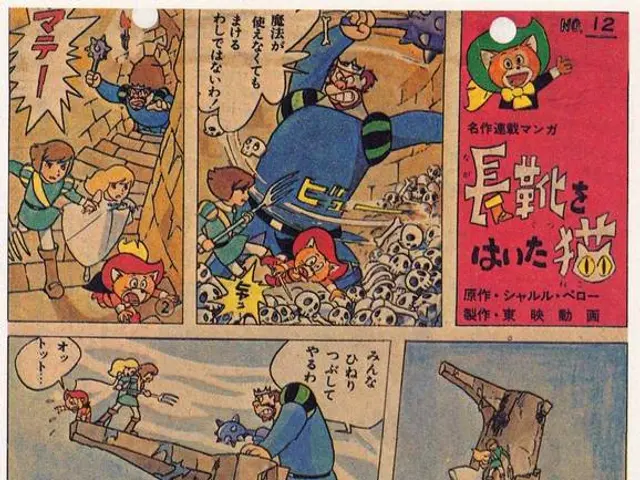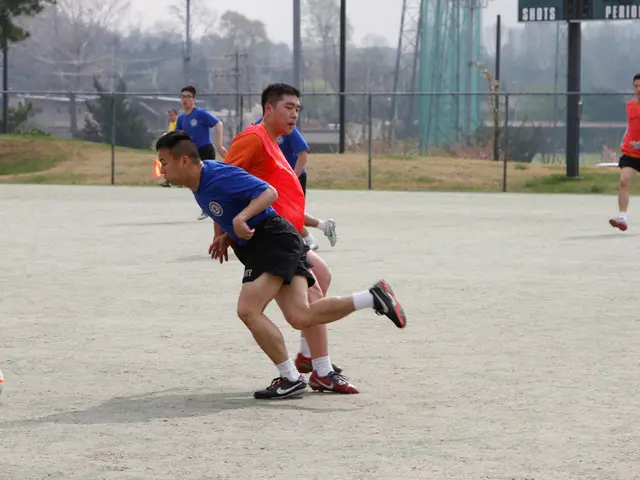Intensive Care Recovery Syndrome: Details, Symptoms, Healing Process, and Beyond
**Post-Intensive Care Syndrome (PICS) and PICS-Family (PICS-F): A Comprehensive Guide**
Survivors of critical illnesses treated in intensive care units (ICUs) may face a range of physical, cognitive, and psychological challenges known as Post-Intensive Care Syndrome (PICS). PICS-Family (PICS-F) refers to similar effects experienced by family members of ICU patients.
**Causes and Symptoms**
PICS is often linked to prolonged ICU stays, the severity of the underlying illness, episodes of delirium, pre-existing neurological or mental health conditions, and certain risk factors such as older age, female gender, unplanned ICU admissions, and prior anxiety or depression. PICS-F can result from stress caused by witnessing critical illness and ICU interventions, uncertainty about patient outcomes, and the psychological burden of making treatment decisions.
Common PICS symptoms include muscle weakness, fatigue, decreased mobility, problems with memory, attention, and judgment, anxiety, depression, and PTSD symptoms. PICS-F symptoms are less likely to be physical but may include concentration difficulties, confusion, and psychological distress.
**Treatment and Prevention**
Effective treatment for PICS involves early physical rehabilitation, cognitive therapy, neuropsychological support, and psychological counseling or psychotherapy. A multidisciplinary, holistic approach involving critical care specialists, rehabilitation therapists, psychologists, and social workers is often employed.
Preventive measures include minimizing delirium in ICU, improving ICU care environments, early mobilization, and family engagement to reduce the risk of PICS and PICS-F.
For PICS-Family, clear communication, emotional support, and early identification and management of psychological distress are crucial. Counseling and support groups can also be beneficial.
**Support and Recovery**
Hospital staff can provide recommendations for further support when leaving the ICU, and one-to-one sessions with healthcare professionals can offer additional aid for individuals recovering from ICU treatment. Support groups for people who have been in an ICU can provide a platform to share experiences with others in similar situations.
Recovery times and the severity of symptoms vary widely among individuals who have been in an ICU. Keeping the mind occupied through activities like keeping a diary can aid in recovery. The outlook for PICS depends on the severity of the critical illness, the impairments when the person leaves the ICU, and any preexisting factors.
PICS symptoms may last for many years, and sedatives and analgesic medications can increase the risk of experiencing cognitive symptoms of PICS. Life-sustaining equipment can put strain on the throat and lungs, and maintaining physical activity can help alleviate these effects.
Treatment strategies for PICS use multidisciplinary approaches involving critical care physicians, neuropsychiatrists, physiotherapists, respiratory therapists, among others. To treat mental symptoms, behavioural therapy, psychological therapy, and medications such as antidepressants may be employed.
A 2018 study suggests that one year after an ICU stay, around 50% of patients still had at least one PICS-related symptom. Vanderbilt University in Nashville, TN, has developed a method that can assess each of the main impairments that come with PICS.
In conclusion, PICS and PICS-F are serious concerns for survivors of critical illness and their families. Awareness, understanding, and early intervention are key to managing these conditions and ensuring the best possible outcomes for all involved.
- Neurological or mental health conditions can contribute to the development of Post-Intensive Care Syndrome (PICS).
- The psychological burden of making treatment decisions can lead to PICS-Family (PICS-F).
- Muscle weakness, fatigue, decreased mobility, problems with memory, attention, and judgment are common PICS symptoms.
- Concentration difficulties, confusion, and psychological distress are potential PICS-F symptoms.
- Early physical rehabilitation, cognitive therapy, neuropsychological support, and psychological counseling or psychotherapy are key components of PICS treatment.
- A multidisciplinary approach involving critical care specialists, rehabilitation therapists, psychologists, and social workers is often used in treating PICS.
- Minimizing delirium in ICU, improving ICU care environments, early mobilization, and family engagement can help prevent PICS and PICS-F.
- Clear communication, emotional support, and early identification and management of psychological distress are essential for PICS-Family.
- Counseling and support groups can be beneficial for PICS-Family.
- Hospital staff can provide recommendations for further support when leaving the ICU.
- Maintaining physical activity can help alleviate the effects of life-sustaining equipment on the throat and lungs.
- Keeping the mind occupied through activities like keeping a diary can aid in recovery from ICU treatment.
- Vanderbilt University in Nashville, TN, has developed a method for assessing the main impairments associated with PICS.
- A 2018 study indicates that around 50% of patients still had at least one PICS-related symptom one year after an ICU stay.
- Workplace wellness programs can help address chronic diseases, such as chronic kidney disease, COPD, type 2 diabetes, cancer, and respiratory and digestive health conditions.
- Education and self-development, including mindfulness, productivity, career development, job search, and goal-setting, are important aspects of mental health.
- Science has shown that managing stress, anxiety, and depression can improve overall health and wellness.
- Skin care is crucial in maintaining eye health and preventing skin conditions.
- Hearing health is essential for communication and overall well-being.
- Therapies and treatments like CBD oil may help manage symptoms of conditions like anxiety, depression, migraine, autoimmune disorders, and Alzheimer's disease.
- Medicare covers various treatments and therapies for neurological disorders, chronic diseases, and other medical conditions.
- Fitness and exercise, in combination with proper nutrition, can help manage chronic diseases and improve cardiovascular health.
- Skills training can help individuals with neurological disorders, such as multiple sclerosis and rheumatoid arthritis, better manage their symptoms and improve their quality of life.





